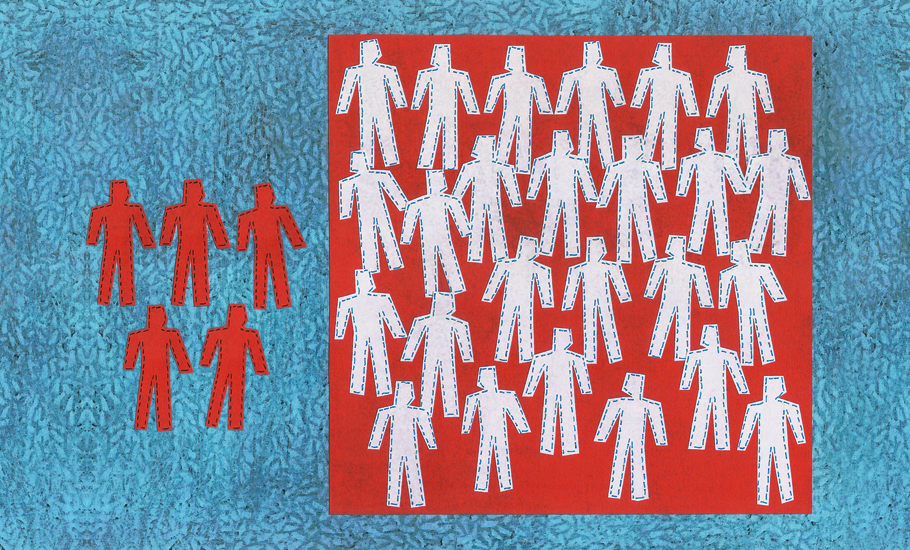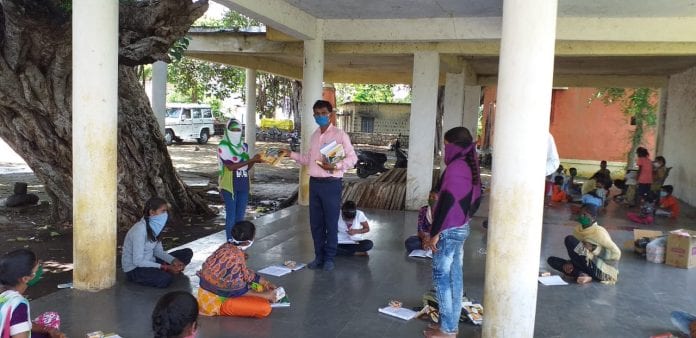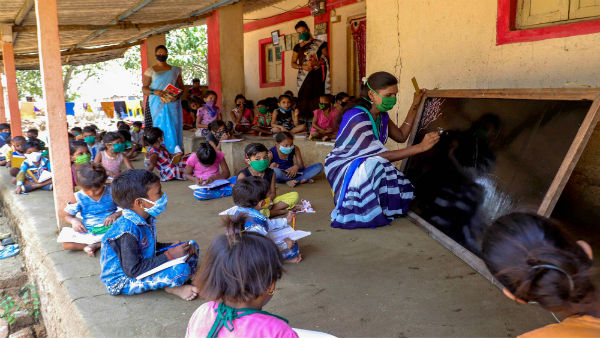
- Home
- India
- World
- Premium
- THE FEDERAL SPECIAL
- Analysis
- States
- Perspective
- Videos
- Sports
- Education
- Entertainment
- Elections
- Features
- Health
- Business
- Series
- In memoriam: Sheikh Mujibur Rahman
- Bishnoi's Men
- NEET TANGLE
- Economy Series
- Earth Day
- Kashmir’s Frozen Turbulence
- India@75
- The legend of Ramjanmabhoomi
- Liberalisation@30
- How to tame a dragon
- Celebrating biodiversity
- Farm Matters
- 50 days of solitude
- Bringing Migrants Home
- Budget 2020
- Jharkhand Votes
- The Federal Investigates
- The Federal Impact
- Vanishing Sand
- Gandhi @ 150
- Andhra Today
- Field report
- Operation Gulmarg
- Pandemic @1 Mn in India
- The Federal Year-End
- The Zero Year
- Science
- Brand studio
- Newsletter
- Elections 2024
- Events
- Home
- IndiaIndia
- World
- Analysis
- StatesStates
- PerspectivePerspective
- VideosVideos
- Sports
- Education
- Entertainment
- ElectionsElections
- Features
- Health
- BusinessBusiness
- Premium
- Loading...
Premium - Events

When caste rears its ugly head in COVID times, education is the casualty
Many teachers across Karnataka have experienced a caste battle under the Vidyagama outreach education programme, wherein the upper caste people had a problem with lower caste students entering their premises, or accessing education with their kids.

When Channa Basava (name changed) and seven of his teacher colleagues walked into a village (not named due to fear of repercussions) in Sindhanur taluk of Karnataka’s Raichur district in May, they were all quite eager and enthusiastic to teach the children and continue the education process stopped by the COVID-19 pandemic and subsequent lockdown. This was under the state government’s...
When Channa Basava (name changed) and seven of his teacher colleagues walked into a village (not named due to fear of repercussions) in Sindhanur taluk of Karnataka’s Raichur district in May, they were all quite eager and enthusiastic to teach the children and continue the education process stopped by the COVID-19 pandemic and subsequent lockdown.
This was under the state government’s newly launched programme, Vidyagama, wherein teachers would reach out to localities and villages to teach a group of students in a common place, rather than all gathering in a school.
This was especially for students from rural areas and backward sections who could not afford online education. The teachers were to conduct classes in groups, maintaining COVID-19 protocols of social distancing and masks. (The Vidyagama programme has been stopped after several students contracted COVID.)
Basava and his colleagues found a Lingayat mutt with vast land and big trees as a suitable place to teach 230 students. The mutt seer also agreed happily to the prospect of holding classes in their premises.
But a few days later, the teachers’ excitement took a hit, for the seer and other upper caste people attached to the mutt raised objections. Their argument — the sanctity of the mutt would be “spoiled” if they allowed lower caste students to enter the place.
“The mutt seer acted at the behest of village leaders who were upper caste,” charges Basava.
Later, even when they shifted the students to a Scheduled Caste area, he says some of the parents of upper caste students did not send their wards to that area.
“But considering that their kids were missing out on education, they again asked us to shift to a community hall in the village,” he adds.
The upper caste population is reportedly more than the lower caste in the village. “For nearly 17 years, I taught in a village where 90% of the villagers were lower caste. It never occurred to me that such caste discrimination existed. But now when I moved to an upper caste dominated area where my school is located, I realise the caste issues are bigger and very much there,” he says.
Being an upper caste himself, Basava says it’s disheartening that people still indulge in such thinking and that they have to stop imparting education to the poor and needy. “What society are we building, if even in 2020 they can’t bear a lower caste kid sit with them and study?” he asks.
From his experience, he says Brahmins and Lingayats try to suppress Nayakas, Holayas and Madigas, who are present in large numbers in the surrounding villages. In many places in Sindhanur, even today the Madiga community members are not allowed to enter temples.
“Being Lingayats, in all their rituals and daily prayers they invoke 12th century philosopher and free-thinker Basavanna. But when it comes to his teachings on a casteless society and secular principles, they fail to follow,” he adds.

Deep rooted problem
Many teachers across the state have experienced a caste battle under the Vidyagama, wherein the upper caste people had a problem with lower caste students entering their premises, or accessing education with their kids.
As per media reports, in several places such as Ballari, Raichur, Koppal and Haveri districts in North Karnataka, the upper caste, mainly Brahmins and Lingayats, have objected to lower caste students accessing their premises for education purposes.
The school teacher feared to give out his name or the village’s name as he felt that the upper caste members, with the backing of local political representatives, may attack him.
“I may even be killed or my students will be subjected to further harassment, so I want to maintain anonymity,” he said.
Basava is raising voice against his own community being an upper caste whereas his headmaster, an SC, fears the upper caste members and asks teachers to adjust and move forward without having to create problems for anybody.
The caste system is so prevalent that people really want to know which caste one belongs to at the first instance. Even in the SC dominant village where he taught earlier, Basava says people asked his caste first and then decided their action.
“I used to tell them I am a teacher and it doesn’t matter. But they would guess my caste by looking at my name or through official records or by taking a guess at ash on my forehead and arms. Immediately, they show respect and give special treatment to me even when I don’t ask for it,” he says.
Basava also adds that the villagers don’t consider questioning the caste system as they think it is something that can’t be changed.
Brushing under the carpet
All this continues despite the Article 15 of Indian Constitution prohibiting discrimination on the basis of religion, race, caste, sex or place of birth. Besides, Article 17 says untouchability is forbidden and punishable under the law. Also, section 8 of the Right to Education Act says there shall be no discrimination against children from the weaker sections of society.
Moreover, many of these religious mutts and associated educational institutions receive government funding.
When asked why he didn’t take it up with the authorities or the police, he says it’s not something that can be changed overnight by way of booking cases. “This discrimination has existed for decades and it will take time. We have to educate people and act slowly rather than jumping to file cases against them,” Basava said.
An NGO, Bharath Gyan Vigyan Samithi (BGVS) dedicated to promoting primary education, healthcare, women’s empowerment, and rural development in North Karnataka says they received eight such complaint from teachers imparting Vidyagama in villages across Raichur, Bellary and Koppal, and that none was interested to take the issue up with officials as they feared repercussion.
Kamala (name changed) says another school teacher belonging to a Scheduled Caste family says she too faced similar problems and the Lingayat mutt did not allow them to teach in their premises in Ballari district.
But later she and her colleagues took to the streets to teach for 10 days. In the meantime, her headmistress spoke to villagers and arranged for classes in a temple that was spacious enough to accommodate 480 students.

Kamala says the students as young as 10-12 years old understand the problem. Narrating one incident, she says when she asked for help to move a vessel containing cooked food from the office room to the kitchen, the student apparently told her she’s not supposed to touch it as she’s a lower caste.
“I faced caste discrimination myself. People were not allowing me to rent a home in a locality dominated by the upper caste. I had to settle down in a SC area with a plethora of problems. I had no choice,” she says.
She says she had complained to the block education officer and the village panchayat about the caste discrimination in the village and warned them of their actions. However, she was not willing to report the case.
“Even to speak to the media, my parents, husband and other family members objected. But I have to highlight this problem. What I faced cannot continue for generations,” she adds.
VP Niranjan Aradhya, educationist and fellow at Centre for Child and Law, NLSIU, says teachers have to raise voices and not keep quiet.
“This is something that is not happening in their private life, but it’s hindering their work as a public person. Besides, any institution, big or small, the moment they get grants become a public institution. So they cannot act private and discriminate,” he said. “Even the SC/ST Commission should take note and take suo motu cognisance and not wait for an official complaint.”
‘System in place to address issue’
Newly appointed commissioner for Public Instruction, V Anbukumar says they have so far not received any such complaints and they would act on it once it comes to their notice.
But additional commissioner for public instructions Nalin Atul said committees were specifically formed for this and the responsibility was given to gram panchayat presidents, development officers, and head of the institutions to find suitable places for teachers to impart education to students.
“We had a system in place to address such concerns as we pre-empted such complaints. But that may not have worked on ground. Dignity and equality of opportunity are the two things we wanted to ensure with this programme,” he says. “We are conducting training programmes for the teachers again this week. That said, social justice cannot be done through education alone. Certain issues are deep-rooted and they take time (to change).”
When asked, a class 10-pass student, Naveen (name changed), belonging to the Madiga caste says, even in classrooms the upper caste student always sat away from the lower caste students. Lingayats and Brahmins, do not even allow us to get into temples. And they don’t allow us to get a haircut in the village,” he said.
Naveen and people belonging to his caste had to travel 11 kms to the town to get a haircut. For him, these caste discriminations are ingrained so much that they think it’s normal and do not assert their right by raising voices.
Just after finishing class 10, he now works as a construction labourer and says he’s happy that his Muslim employer does not discriminate. “They (Muslims) see us as equals. But our Hindu community keeps a distance from us and that somewhat worries us,” he adds.
